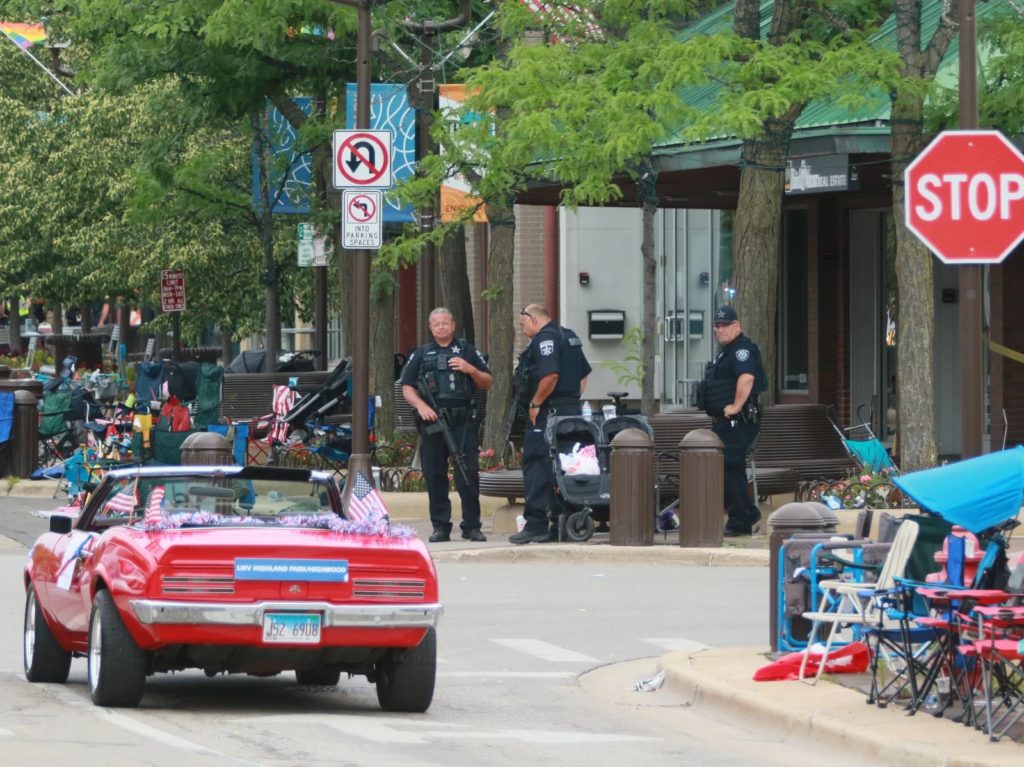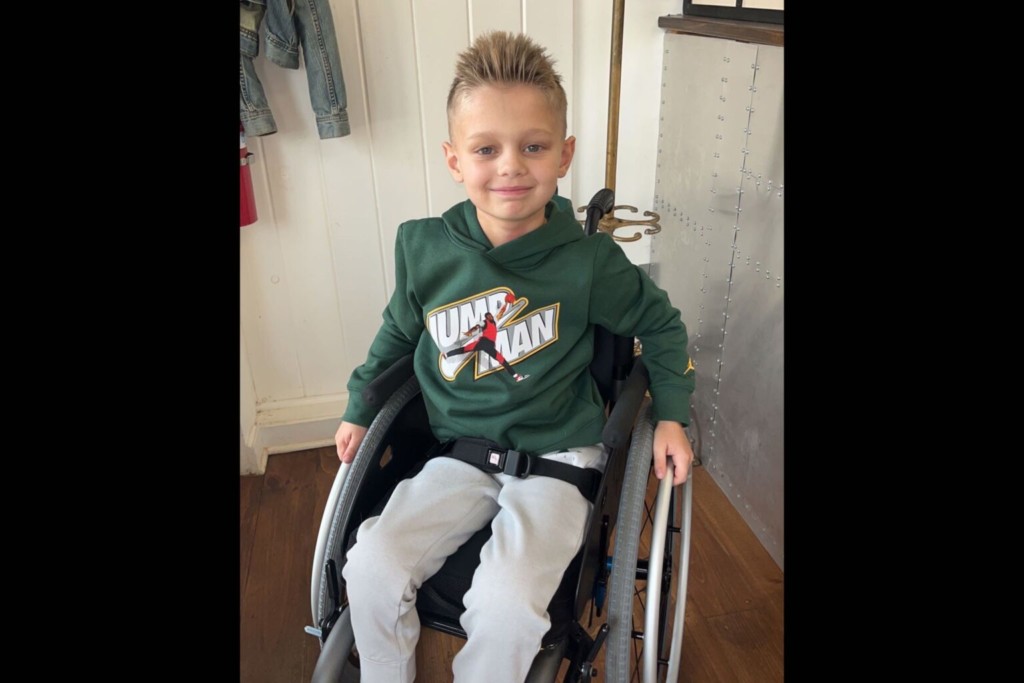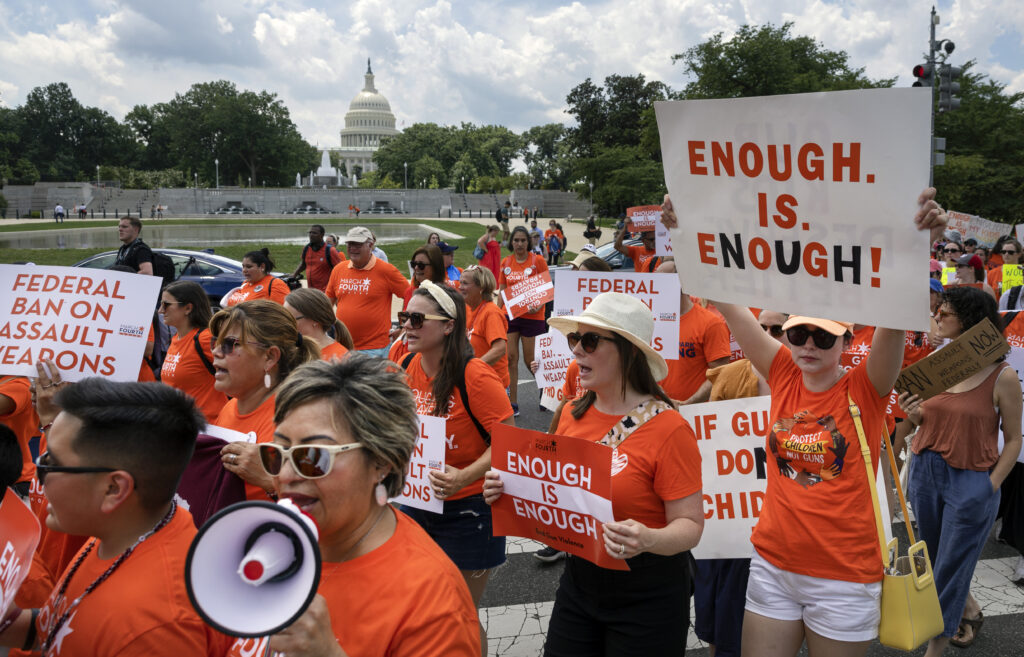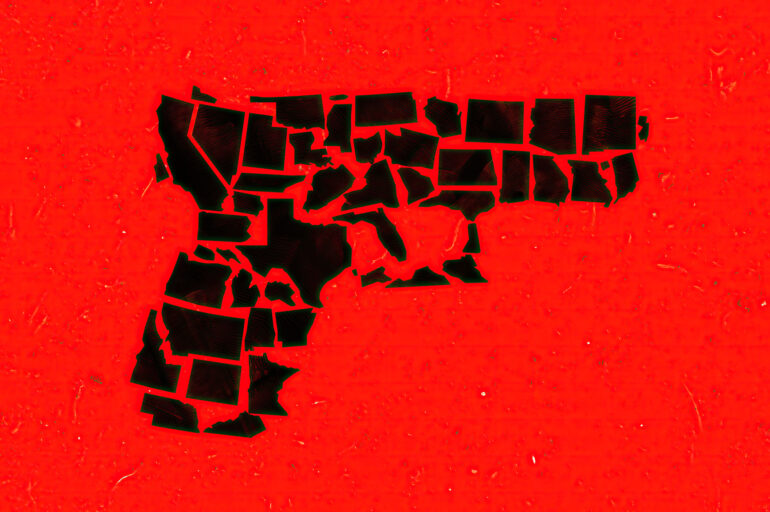The town of Highland Park, a tight-knit community north of Chicago, has been grappling with the fallout of the July 4, 2022, mass shooting that turned a holiday parade into a scene of horror. Seven people were killed and nearly 50 others injured when a rooftop gunman opened fire with an AR-style rifle.
Nearly three years later, the alleged shooter, Robert Crimo III, pleaded guilty in March 2025, following a previous courtroom appearance in June 2024 where he unexpectedly reversed his intention to plead guilty. He is scheduled to be sentenced on April 23, with approximately 48 victims expected to provide impact statements before Lake County Judge Victoria Rossetti.

Civil Suit Moves Forward After Landmark Decision
As the criminal proceedings near resolution, victims are also seeing progress in civil litigation. A lawsuit filed in September 2022 by Romanucci & Blandin, Everytown Law, and Wallace Miller — on behalf of 79 survivors — secured a significant legal victory this month.
The suit targets firearms manufacturer Smith & Wesson, online gun distributor Bud’s Gun Shop, Illinois-based Red Dot Arms, and both the shooter and his father. Plaintiffs argue that Smith & Wesson’s marketing practices irresponsibly targeted high-risk young men, and that the sale of the weapon to someone prohibited from owning one in his own town was negligent.
An April 1 decision by both the federal District Court and the Seventh Circuit Court of Appeals rejected Smith & Wesson’s attempt to move the case to federal court, allowing it to proceed in state court in Lake County, Illinois.
“Today’s historic decision sends a clear message that the gun industry does not have carte blanche to engage in irresponsible marketing of assault rifles, without any concern for the obvious dangers of such marketing. We are also pleased that our claims against the firearms retailers for selling an assault rifle to someone who lived in a town where he was prohibited from having one are allowed to go forth. We are steadfast in our fight to hold the defendants accountable for the damage their conduct has caused and look forward to the truth coming out as this case proceeds to discovery,” read a press release by the attorneys of record.
Just 11 days earlier, the federal court ordered Smith & Wesson to pay over $450,000 in legal fees for what it deemed a frivolous jurisdictional challenge.
Lifelong Trauma and a Fight for Accountability
For survivors like Ashbey Beasley, the legal milestone represents years of unrelenting advocacy. Beasley was attending the parade with her 6-year-old son when they were forced to flee.
“We ended up running for our lives… not knowing if we were going to come home,” Beasley said. “I saw him [my son] change as a person.”
Since the shooting, Beasley has become a vocal advocate for gun reform.
She appeared in a congressional video montage shown at a House Oversight hearing weeks after the shooting and worked with lawmakers to help pass Illinois’ assault weapons ban.
On April 14, she received word that a federal bill she supports — classifying mass shootings in places of worship, schools, government buildings, grocery stores and other public spaces as domestic terrorism — is advancing in Congress.
She is very pleased that the civil case brought by Romanucci & Blandin, Everytown Law and Wallace Miller has had a victory against the gun manufacturers.
“I think that anytime these kinds of cases are allowed to proceed and anytime we are allowed to examine the ways that we can hold manufacturer responsible, this is how we save lives,” Beasely said. “It’s really important that the courts let us present evidence of how these manufacturers are contributing to people’s deaths.”
The Cost of Violence
The shooting claimed victims ranging in age from 35 to 88, including Irina and Kevin McCarthy, who died shielding their 2-year-old son. One parade goer put his child in a dumpster as he ran to find his family members while bullets rained down. Some victims have lifelong injuries including then 8-year-old Cooper Roberts who was left paralyzed from the waist down. One woman endured more than 10 surgeries.

Michael Cohn, 59, a lifelong resident of Highland Park and former president of the Highland Park District 112 School Board, was at the parade with his daughter and two cousins, Jacki Lovi Sondheim and her sister, Tracy. They had set up chairs and were enjoying the festivities when they thought they heard fireworks.
“So, I looked at my daughter to my right and she is diving to the ground and looked like she was okay. I didn’t see blood or anything… when I turned to Jackie, she and I caught eyes,” Cohn recalled. “She was turning her head to look at me… and then her head slumped… straight down and I knew something was wrong.”
Michael and his daughter Dani, who is a trained EMT, performed CPR. But his cousin, Jacki Sondheim, he later learned, died instantly.
“These weapons fire bullets at such high velocity that it does so much damage,” Cohn said. “It goes in the size of maybe a pinky finger and comes out the back like the size of a fist.”
Cohn called the this first victory against the gun manufacturers “baby steps,” adding, “I would like to see these assault weapons banned, absolutely… They are weapons of war.”

A Precedent for Parental Responsibility
In November 2023, the shooter’s father, Robert Crimo Jr., pleaded guilty to seven counts of misdemeanor reckless conduct for sponsoring his son’s application to buy an assault rifle. He was sentenced to 60 days in jail, two years’ probation, and 100 days of public service. He served 27 days and was released on good behavior.
Although far shorter a sentence than if he had gone to trial, his sentence set a precedent for other parents of mass shooters.
“Robert Crimo Jr. made the reckless and dangerous decision,” Lake County State’s Attorney Eric Rinehart said at the time. “This wasn’t a fishing license. This wasn’t a permission slip to go to the museum — this was a permission slip for his son to buy an assault rifle. And when he signed this permission slip, he knew exactly how dangerous it was for this 19-year-old to have a weapon.”
A Broader Legal Strategy
Everytown Law, the litigation arm of Everytown for Gun Safety Support Fund, is the largest and most experienced team of litigators in the U.S. working to advance gun violence prevention in the courts. Everytown Law fights for everyone’s right to live free from gun violence, including representing survivors of gun violence and state and local governments seeking accountability and reform from bad actors in the gun industry, challenging dangerous gun laws, and defending gun safety laws against Second Amendment and preemption challenges. Learn more about Everytown Law’s work at www.everytownlaw.org.
How to Help
To support survivors and help prevent future mass shootings like those in Highland Park and, more recently, at Florida State University, we must address gun violence from multiple angles — legal, legislative, community, and mental health.
Start by supporting Everytown for Gun Safety and Everytown Law, the largest and most experienced team of litigators working to hold the gun industry accountable, defend lifesaving gun laws, and represent survivors in court.
But the fight to end gun violence requires more than legal action. From advocacy to direct support for affected communities, our updated guide outlines dozens of organizations and actions you can take right now.
Together, we can push for change — community by community, case by case.

Susan Berger is a freelance journalist in Chicago and has written for the Washington Post, New York Times and Chicago Tribune. She was a 2021 CDC Fellow through the Association of Health Journalists, a National Press Foundation Fellow in 2019 to study vaccines and dementia. She also has written for Health Magazine, National Post, Agence France-Presse, and CBC and Better Magazine. Ms. Berger has appeared on the Today Show, NBC Nightly News, BBC World News, CNN, WGN-TV, WTTW-TV and on CBC Radio. Her work can be viewed at www.bergerreport.com and you can follow her on Twitter @Msjournalist

